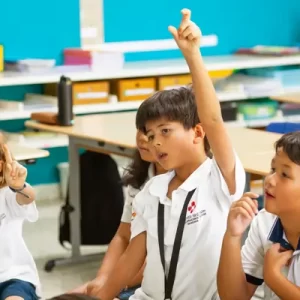Experiential learning has emerged as a powerful catalyst for personal and professional growth, revolutionizing traditional educational paradigms. Unlike passive learning methods that rely heavily on lectures and rote memorization, experiential learning engages individuals in hands-on, immersive experiences that foster critical thinking, problem-solving skills, and emotional intelligence. This dynamic approach to learning has proven to be highly effective across various age groups, from adolescents in middle school to adults in professional development programs. One of the key advantages of experiential learning is its ability to bridge the gap between theoretical knowledge and practical application. Instead of merely absorbing information from textbooks or lectures, learners actively participate in activities that require them to apply concepts in real-world scenarios. This active engagement not only enhances understanding but also cultivates a deeper level of retention and mastery. In middle school learning, experiential learning plays a pivotal role in igniting curiosity and fostering a love for exploration.

By integrating hands-on projects, interactive simulations, and real-life experiments into the curriculum, educators can create a dynamic learning environment that stimulates students’ innate curiosity and creativity. Whether it is conducting science experiments, designing art projects, or participating in collaborative problem-solving activities, experiential learning encourages students to take ownership of their learning journey and develop essential skills such as teamwork, communication, and resilience. Moreover, experiential learning empowers adolescents by instilling a growth mindset and a sense of agency in their own education. Rather than passively receiving information, students actively engage in inquiry-based learning experiences that encourage them to ask questions, seek solutions, and embrace challenges as opportunities for growth. This shift in mindset not only enhances academic performance but also equips students with the confidence and adaptability needed to navigate an ever-changing world. In professional development settings, experiential learning has become increasingly valued for its ability to cultivate essential skills such as leadership, collaboration, and innovation.
Through immersive workshops, simulations, and real-world projects, employees are provided with opportunities to apply theoretical knowledge to practical challenges faced in their roles. This hands-on approach not only enhances job performance but also fosters a culture of continuous learning and professional growth within organizations. Furthermore, experiential learning is particularly effective in developing emotional intelligence EI – a critical skillset that encompasses self-awareness, empathy, and interpersonal relationships. By engaging in experiential activities that require individuals to navigate complex social dynamics, manage conflicts, and communicate effectively, learners develop a deeper understanding of themselves and others. This heightened EI not only enhances leadership capabilities but also fosters a more inclusive and empathetic workplace culture and check it out at little learners zone site. At its core, experiential learning encourages students to explore, experiment, and take risks. By immersing themselves in practical activities, they develop a deeper understanding of concepts and principles while honing their problem-solving skills. Experiential learning serves as a transformative catalyst for growth across diverse contexts, from educational settings to professional development programs.

